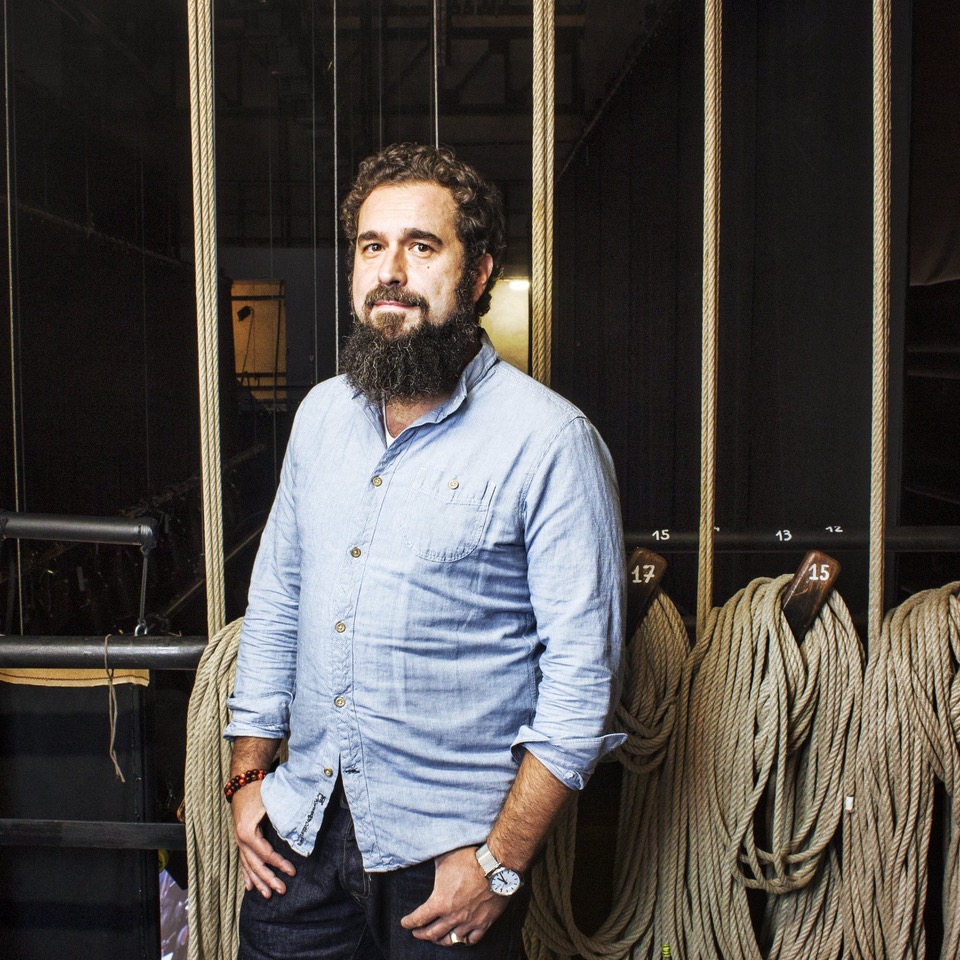
Christophe Rulhes
Anthropologist, author and theatre director, musician, co-founder of the theatre company GdRA
Christophe Rulhes‘ research combines theatre and theatrical direction with the anthropology of becoming and of Indigenous languages. In a number of locations – Japan, South Africa, Madagascar, rural and urban France, Occitania, Corsica, Reunion Island, Amazonian Guyana – he has focused on describing “paysanisms” (“ruralisms”) expressed through words and gestures. In developing this concept from the work of Marcel Jousse, he seeks to research the bonds of shared belonging between land, spaces and humans, the concrete and narrative attachments that construct villages, pathways, neighbourhoods and terrains to inhabit and traverse. In play here are imaginaries and ways of seeing the world that are at once terrestrial, oceanic and celestial, looked at in detail via a personalistic approach. The locations studied are often borderlands, blurred, multilingual, polluted, hybrid, undergoing regeneration, threatened by extinction or in a state of metamorphosis.
This anthropological and theatrical research is based on the study of specific ecosocialities and follows principles of an ecology of practices anchored in an environment that is enacted and active. The methodology draws on visual anthropology through filmed recordings of everyday faces, stories and gestures which then inspire stage performances and scenographic video installations. In this way, the anthropological research feeds into multidisciplinary representations involving trances: plays or musical and choreographic shows, hybrid formats combining arts and sciences, performance art, multilingual texts, films incorporated into stage performances or exhibitions. It contributes to portrait- and personality-based theatre, described by critics as “documentary”, “reality-based”, “realistic”, or simply “anthropological”. For this work, in 2023 Christophe Rulhes was awarded a Doctorate by Portfolio in Anthropology from the LAS (Laboratoire d’Anthropologie Sociale) of the EHESS (École des Hautes Études en Sciences Sociales). His portfolio set out the formats and methods used in his research and creative outputs.
Within OSPAPIK and with his theatre company GdRA, his post-doctoral work consists of a collaborative research and writing project with the Indigenous artist Wayana Aimawale Opoya who presents on stage, in words and pictures. Together, based on Maluwana, traditional “sky ceiling decorations” (cosmogrammes whose meanings are debated, created and painted by Aimawale Opoya), they are researching Carib Amerindian astronomy from Amazonian Guiana. Adopting an Indigenous point of view, they question Western astrophysics, and the activities of the Guiana Space Centre and the French National Centre for Space Studies in Toulouse. In the Wayana language, a word for satellites has recently emerged: Silikeimë, or “monster star”. What are these space machines that criss-cross the night sky, move through the traces of the primordial founding fire of the great tree kumaka, disrupt the burned people who wish to join Jejunu on the moon, disturb Silike the cricket who invented the night, live in the milky way of the riverside villages, draw in the investments of French Guiana when the inhabitants of Taluen village have had only intermittent access to electricity for just a few years and still do not have the high school they have been asking for? Christophe Rulhes is here developing an anthropology of vision and the visible, an anthropology of ocularity, in the context of a troubled and polluted forest and sky, where ways of life are in transition. Who seeks to see what? And for which power?

